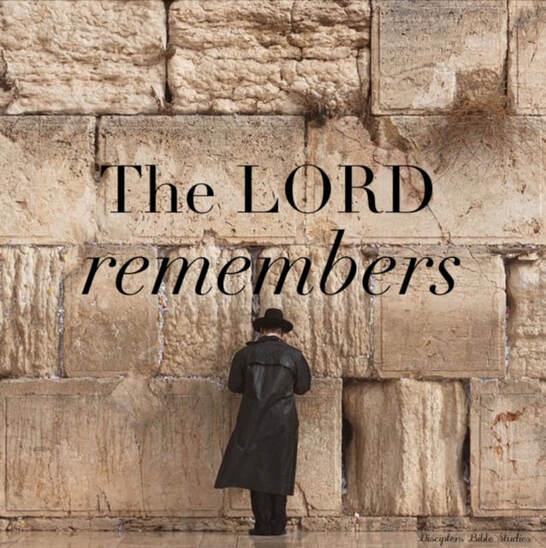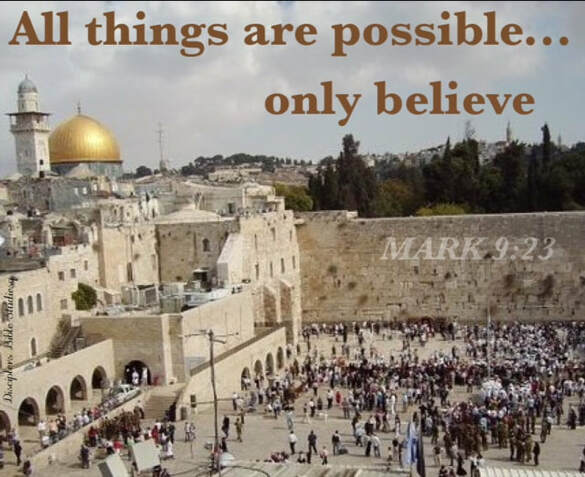 -Along with the prophet Haggai, Zechariah was one of nearly 50,000 Jews who returned to Judah from exile in Babylon in response to the decree of king Cyrus (538 B.C.) to rebuild the temple in Jerusalem. The people had begun work on the temple, but after laying the foundation, discouragement set in and sixteen years passed with no progress. So God called first Haggai and then Zechariah, often referred to as "prophets of the restoration", to call the people to return to Him and resume building. God first raised up Haggai who pointed out the people’s sin and selfishness in failing to complete the work they had been called to do, to call them back to work, and to convey God’s promise to bless them as they labored. Haggai’s prophecy was both an exhortation to motivate the people to return to work and a word of encouragement to complete the job. Zechariah prophesied after the people had resumed rebuilding, and his main purpose was to give the people moral support, confidence in the Lord, and hope for the future as they obeyed Him and completed their work in the midst of opposition from their pagan neighbors. Zechariah’s prophecy begins with an oracle and eight visions calling the people to return to the LORD and serve Him with sincerity of heart. His theme is, “look to the future”. It was vitally important that the temple be built because one day in the future the glory of the Messiah would dwell there and fill it. That day of blessing could never come unless the people were obedient to God. As one commentator put it, they were not just building a temple. They were building the future. The Messiah was coming and they should work on the temple with whole-hearted joy and enthusiasm. Zechariah’s is a prophecy of encouragement. Zechariah conveys “the word of the LORD” to entreat and encourage the people. In the prophecy of Zechariah, we see what a great encourager our God is. He never leaves us alone to amble blindly through our sojourn here on earth, but He speaks to us through His Word. He spoke to his people who lived 500 years before Christ through the prophets He sent. In His Word, He speaks to us through those prophets also, as well as through the gospel writers and apostles and his disciples in the New Testament. He has spoken to us through His servants through the ages to encourage us right where we are here and now in the twenty-first century. And His message way back in the days of Haggai and Zechariah is the same message He encourages us with today. Jesus is coming to save us and set things right. He’s coming to deliver us from evil. He’s coming to revive us, restore us, and renew us. He’s coming so we can rejoice right here and now in the knowledge and hope that He gives us in His Word. The final chapter of Zechariah’s prophecy is an oracle about the Day of the Lord - a future day seen by many of the prophets - a day of judgment for the wicked but of salvation and joy for God’s people. Zechariah tells us it will be a day when the remnant of all nations will worship the King, the LORD of Hosts (Zechariah 14:16) and it will be a day of “HOLINESS TO THE LORD”. Do you need encouragement? Do you need encouragement to get through your day, to go to work, to care for your children, to get your school work done, to be faithful to you ministry at church, or even just to go out and face the world and other people in your neighborhood, at church, on the freeways, in the supermarket? Don’t we all need encouragement? And we see in the prophecy of Zechariah that the Lord our God is our great encourager. Did you know that soon after Zechariah prophesied there was a period of 400 years of silence when there was not one word from God to His people. God did not raise up any prophets for 400 years! It was not until John the Baptist came, as a forerunner of Jesus, the Messiah, that God again spoke to the people. But He had given them amazing encouragement through the message of Zechariah. Even Zechariah’s name, which means, “The LORD remembers” was an encouragement. And that should be an encouragement to us as well. The LORD does remember. He remembers you and He remembers me and He remembers every promise He has made to us in His Word. And He will keep every one of those promises. So don’t ever be discouraged. Sit down for a few minutes (or as long as you like) every day and encourage yourself in His Word. I promise that as you read and soak it in and apply it to your life, you will experience the encouragement of the LORD. With love, ~Suzie
1 Comment
 If you are a classical music lover or if you have ever been to an Easter performance of George Frederick Handel’s Messiah, then you may already know something of what Haggai’s prophecy is all about. Very early on in that magnificent oratorio the choir announces, “The glory of the Lord shall be revealed!” And this is followed by a powerful bass solo which proclaims the words of Haggai 2:6-7 “For thus saith the Lord of hosts; Yet once, it is a little while, and I will shake the heavens, and the earth, and the sea, and the dry land; And I will shake all nations, and the desire of all nations shall come.” Handel composed the “Messiah” in 1741, and I’m sure millions of people all over the world have been to performances from that time to this. Perhaps this could make Haggai the most famous “minor prophet” of all. And the Book of Haggai is only two chapters long. Haggai wrote at the time in Israel’s history after the northern kingdom of Israel had been defeated and destroyed by the Assyrians and the southern kingdom of Judah, along with its lovely city of Jerusalem and temple, had experienced a similar fate at the hands of the Babylonians. The people of Judah were exiled to Babylon and lived in exile there for seventy years until God moved the king, Cyrus, to send a contingent of Jews back home to rebuild the temple that had been destroyed. Although many Jews had settled down and become comfortable in Babylon, a fairly large group returned to Jerusalem to begin work on rebuilding the temple. When they laid the foundation, the people celebrated and praised God for His grace and goodness to them. But many of the older people wept aloud because they remembered the glory of the former temple and knew that it could never be the same. Discouragement grew as many difficulties arose. The surrounding pagan peoples opposed and plotted against the Jews until their discouragement turned into defeat. The building was stopped and other priorities, such as building their own homes, took precedence in their daily lives. The people lived for fifteen years in an atmosphere of economic hardship. They were apathetic and demoralized. Are you ever been like those returned exiles? Have you ever felt God calling you to a task but then become discouraged and failed to finish? Perhaps you questioned if you really heard God calling in the first place? Or maybe you compared your work to someone else and began to feel that yours was inferior and God was not blessing you. Or perhaps you quit because those around you failed to support your efforts or even worked against you. Or maybe the task was much more difficult than you anticipated. Haven’t we all been tempted in some situation like one of these? Maybe you’re facing a similar difficulty right now. If you’ve ever been tempted to be a quitter, God has a message for you, and it is found in Haggai’s prophecy. It was fifteen years after the quitters quit, that God raised up the prophets Zechariah and Haggai to call the people to reassess their situation and their priorities and get back to the task of rebuilding the temple. And, as is typical in God’s Word, the messages to the Jews way back then are applicable to us in the twenty-first century as well. Haggai’s prophecy is a series of messages from God, beginning with a challenge to the people to take a close look at themselves and get back to construction. Happily, this is followed by a positive response from the people and their obedience in taking up the challenge, even though they were deeply discouraged. The final portion of Haggai’s prophecy is filled with encouragement from God. He reminds the people that He is with them and He will judge those who have opposed and mistreated them. He has rich blessings in store for them, and He will keep His promise to bless the whole world through them. It is God’s message of encouragement in Chapter 2, verses 6 and 7 that Handel wrote into his “Messiah”, it is the promise of the Messiah and His coming to set all things right. “For thus saith the Lord of hosts; Yet once, it is a little while, and I will shake the heavens, and the earth, and the sea, and the dry land; And I will shake all nations, and the desire of all nations shall come.” And isn’t that where we should find our encouragement? The "desire of all nations" has come and He has told us that "All things are possible to him who believes" (Mark 9:23). God did not call us to begin and then quit. He called us because he had good works planned for us before the foundation of the world (Ephesians 2:10). He called us to be a blessing to those around us -- a blessing which He will use to spread His Name and His Glory throughout the world. Who knows how far your small local influence may be spread by the power of God and His Holy Spirit. I hope you’ll read Haggai’s prophecy. Then go see a performance of the Messiah this Easter, And be encouraged to carry on with joy where God has called you. With love, ~Suzie |
SUZIE KLEIN
I have been involved in Disciplers since 1987, as a discussion leader, teacher, writer, and now as director. I am profoundly committed to the stewardship of this ministry which God has entrusted to me for a time. God’s word is the chief joy of my life. I cherish my personal time in the word, and I am filled with gratitude to be able to share His word with you, my fellow disciples in Christ. Categories |

 RSS Feed
RSS Feed